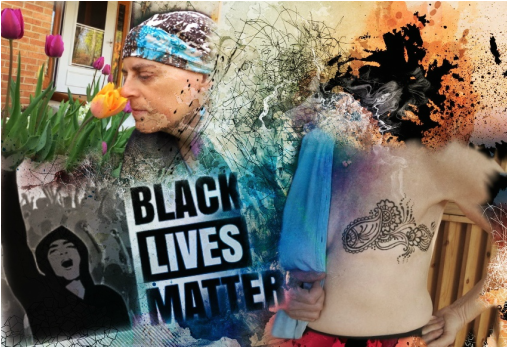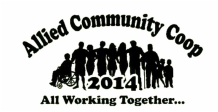On the Home Front: Tony Robinson, Breast Cancer, and CORE
|
Reflections on individual tragedy and systemic oppression by Becca Krantz, CORE lead organizer, May 2015
The night Tony Robinson was killed, I was oblivious, dealing with my own minor tragedy; I was in the process of being diagnosed with breast cancer. As the sad news unfolded, I heard from the newspaper and from friends about their attendance at protest/solidarity vigils and marches, and from doctors, nurses, and technicians about my own prognosis. I had to undergo a series of painful biopsies and was eventually told I have “triple-negative” stage 2 invasive ductal carcinoma in both breasts. This is a fast-growing type of cancer that definitely needs treatment, and some of the newer agents don’t work on it, but it is also likely completely curable given that we caught it early.
|
The diagnosis of the Tony Robinson killing, though it may seem simple to many, is, I think, actually more confusing. In our culture of individualism and of black & white thinking, it is so easy to try to blame either Officer Kenny, or Tony Robinson himself (and by implication, if one is guilty, the other is not). Many of us are working to understand, however, how much of racism in our society is not of the individual attitudinal variety, or at least not only that; it is institutionalized, systemic forces that are harder to see and for which it is impossible to pinpoint any one source. It is the legacy of slavery, prejudice, and political and economic disenfranchisement played out over generations. It is subtle but statistically irrefutable unintended consequences of seemingly well-meaning strategies like community policing. It is our collective identities of “good progressive white people in Madison” and (I’m guessing here) beleaguered long-suffering (choose your poison: angry/not-angry) victims of white dominance.
In my years studying sociology, I became used to thinking in these more systemic terms, and about how social change and personal change need to go hand in hand in order for either one to be effective. We each continue to enact these social forces every day through our habits and unconscious attitudes, while the forces themselves are greater than us as individuals. Changing laws, policies, training procedures, media representations, and the like can all be helpful, albeit painfully slow and subject to backlash, especially without the necessary introspection and changes to inter-personal relationships.
Tony Robinson’s friends and family are dealing with a very personal tragedy, and every Black parent deals with fears for his or her own children. Similarly, as I go through my journey with cancer, I am mostly dealing with it on a very personal level; how can I manage the disease, the treatment regimen, side effects, and my mental and spiritual state? While diagnosing my cancer and coming up with a treatment plan was relatively straightforward, looking at systemic causes is also relevant. Although breast cancer is a complex set of diverse diseases with diverse and still poorly-understood causes, Breast Cancer Action states that:
A growing body of evidence from experimental, body burden and ecological research indicates that there is a connection between environmental factors and breast cancer….The U.S. government has no adequate chemical regulation policy, which allows companies to manufacture and use chemicals without ever establishing their safety in humans. As the use of chemicals has risen in the U.S. and other industrialized countries, so have rates of breast and other cancers….In the 1960s, a woman’s lifetime risk for breast cancer was 1 in 20. Today it is 1 in 8….Non-industrialized countries have lower breast cancer rates than industrialized countries. People who move to industrialized countries from countries with low rates develop the same breast cancer rates of the industrialized country…
And of course, the environmental impacts of unregulated industry are not evenly distributed, nor is access to health care, so women of color and women in poverty are more likely to be exposed to harmful chemicals, and less likely to have access to good treatment when they get sick. I recently spoke with a middle-class Black colleague about this article, and she told me that some of the women leaders in the Allied neighborhood who are actively involved in the local Black Lives Matter protests are also, as it happens, dealing with cancer and other serious health issues of their own. For me, it feels like a choice between focusing on my own healing and going to a protest; for them, it seems, the protests aren't optional; I imagine it feels like it is all just one big fight for their lives.
As an economically privileged white woman with a supportive, spiritually-inclined husband and a vast and rich community network, I have been able to choose a lot of things about how I respond to having cancer. I am choosing to view it as "dancing with cancer" rather than "fighting" it. I am committed to doing the dance in a way that deepens my own presence, connection, and compassion, and in a way that supports the healing of others and the healing of the world. One way I've found to help myself and others simultaneously is through blogging about my experience. You can follow my blog by setting up a login at: posthope.org/becca. Another way is at the bottom of this page -- if you are inspired by this article in any way, I encourage you to consider donating not just to CORE, but also to the Allied Community Coop or another organization working for racial or environmental justice.
Although I have cut back my work time on CORE during my treatment, and we are scaling back a few of our ambitions for this year as a result, I actually feel CORE will not suffer in the long run from this personal health crisis of mine. One reason is that the day-to-day programming and operations are in stellar hands with Program Director Julie Andersen and Program Assistant Elizabeth Morris. We have a strong Steering Committee who in February completed a wonderful retreat, where we reviewed our history and committed more deeply to our promise, which is to bring people together to cultivate individual and collective strength, courage, and creativity in service of a just, peaceful, sustainable world. And, we envisioned what “shape” we need to take to on our path towards fulfilling this promise. Rather than laying out a plan for making CORE a sustainable, independent 501c3 organization, we realized we want to continue and deepen in the way we began; as a growing, decentralized, relational network of support, reflection, and reciprocity. As we explore and lean into what this means, we expect to be more explicit about how we use relational organizing, Art of Hosting, and other innovative methods, and invite others to adopt these powerful practices. We are also excited to be facing into Madison’s equity issues more fully with upcoming programming, including our May and July Consultants’ Circles, and our new, diverse CORE Action Café work group, which is committed to ensuring that our model for this brief, high-impact session is inclusive, accessible, and relevant to communities whose internal assets are undervalued by the dominant culture.
On another, less tangible level, I am finding that the principles and values embedded in CORE – the deep importance of reflection, of relationship, transformation, equity, and resilience – are proving to be all-important during this time. I am doing my dance with cancer as myself, which means, in part, as a relational community organizer would. I am inviting everyone in, and am finding it a precious gift to slow down and deepen my relationships with many people who are making time to come be with me as I weather the pain, fear, nausea, and unknowns, and as I seek ways to find joy and celebrate life each day. It is my belief that these values and practices are also part of the prescription for dismantling racism and healing our environment. It is only through our relationships with each other, and through taking time to step back from the urgent to identify what is important, that we can heal old wounds, build new bridges, and create fundamental and lasting change.
I thank each of you deeply for being part of this journey, in all the ways you have been doing. And, if you are able at this time to make a donation to support the ongoing work of CORE, we would be most grateful. A generous new donor to CORE will match the first $1000 in gifts given through July 4th 2015!
In my years studying sociology, I became used to thinking in these more systemic terms, and about how social change and personal change need to go hand in hand in order for either one to be effective. We each continue to enact these social forces every day through our habits and unconscious attitudes, while the forces themselves are greater than us as individuals. Changing laws, policies, training procedures, media representations, and the like can all be helpful, albeit painfully slow and subject to backlash, especially without the necessary introspection and changes to inter-personal relationships.
Tony Robinson’s friends and family are dealing with a very personal tragedy, and every Black parent deals with fears for his or her own children. Similarly, as I go through my journey with cancer, I am mostly dealing with it on a very personal level; how can I manage the disease, the treatment regimen, side effects, and my mental and spiritual state? While diagnosing my cancer and coming up with a treatment plan was relatively straightforward, looking at systemic causes is also relevant. Although breast cancer is a complex set of diverse diseases with diverse and still poorly-understood causes, Breast Cancer Action states that:
A growing body of evidence from experimental, body burden and ecological research indicates that there is a connection between environmental factors and breast cancer….The U.S. government has no adequate chemical regulation policy, which allows companies to manufacture and use chemicals without ever establishing their safety in humans. As the use of chemicals has risen in the U.S. and other industrialized countries, so have rates of breast and other cancers….In the 1960s, a woman’s lifetime risk for breast cancer was 1 in 20. Today it is 1 in 8….Non-industrialized countries have lower breast cancer rates than industrialized countries. People who move to industrialized countries from countries with low rates develop the same breast cancer rates of the industrialized country…
And of course, the environmental impacts of unregulated industry are not evenly distributed, nor is access to health care, so women of color and women in poverty are more likely to be exposed to harmful chemicals, and less likely to have access to good treatment when they get sick. I recently spoke with a middle-class Black colleague about this article, and she told me that some of the women leaders in the Allied neighborhood who are actively involved in the local Black Lives Matter protests are also, as it happens, dealing with cancer and other serious health issues of their own. For me, it feels like a choice between focusing on my own healing and going to a protest; for them, it seems, the protests aren't optional; I imagine it feels like it is all just one big fight for their lives.
As an economically privileged white woman with a supportive, spiritually-inclined husband and a vast and rich community network, I have been able to choose a lot of things about how I respond to having cancer. I am choosing to view it as "dancing with cancer" rather than "fighting" it. I am committed to doing the dance in a way that deepens my own presence, connection, and compassion, and in a way that supports the healing of others and the healing of the world. One way I've found to help myself and others simultaneously is through blogging about my experience. You can follow my blog by setting up a login at: posthope.org/becca. Another way is at the bottom of this page -- if you are inspired by this article in any way, I encourage you to consider donating not just to CORE, but also to the Allied Community Coop or another organization working for racial or environmental justice.
Although I have cut back my work time on CORE during my treatment, and we are scaling back a few of our ambitions for this year as a result, I actually feel CORE will not suffer in the long run from this personal health crisis of mine. One reason is that the day-to-day programming and operations are in stellar hands with Program Director Julie Andersen and Program Assistant Elizabeth Morris. We have a strong Steering Committee who in February completed a wonderful retreat, where we reviewed our history and committed more deeply to our promise, which is to bring people together to cultivate individual and collective strength, courage, and creativity in service of a just, peaceful, sustainable world. And, we envisioned what “shape” we need to take to on our path towards fulfilling this promise. Rather than laying out a plan for making CORE a sustainable, independent 501c3 organization, we realized we want to continue and deepen in the way we began; as a growing, decentralized, relational network of support, reflection, and reciprocity. As we explore and lean into what this means, we expect to be more explicit about how we use relational organizing, Art of Hosting, and other innovative methods, and invite others to adopt these powerful practices. We are also excited to be facing into Madison’s equity issues more fully with upcoming programming, including our May and July Consultants’ Circles, and our new, diverse CORE Action Café work group, which is committed to ensuring that our model for this brief, high-impact session is inclusive, accessible, and relevant to communities whose internal assets are undervalued by the dominant culture.
On another, less tangible level, I am finding that the principles and values embedded in CORE – the deep importance of reflection, of relationship, transformation, equity, and resilience – are proving to be all-important during this time. I am doing my dance with cancer as myself, which means, in part, as a relational community organizer would. I am inviting everyone in, and am finding it a precious gift to slow down and deepen my relationships with many people who are making time to come be with me as I weather the pain, fear, nausea, and unknowns, and as I seek ways to find joy and celebrate life each day. It is my belief that these values and practices are also part of the prescription for dismantling racism and healing our environment. It is only through our relationships with each other, and through taking time to step back from the urgent to identify what is important, that we can heal old wounds, build new bridges, and create fundamental and lasting change.
I thank each of you deeply for being part of this journey, in all the ways you have been doing. And, if you are able at this time to make a donation to support the ongoing work of CORE, we would be most grateful. A generous new donor to CORE will match the first $1000 in gifts given through July 4th 2015!
Click here to donate to the Allied Community Coop,
|
|
Click here to make a tax deductible donation to CORE using paypal or a credit card. The first $1000 in donations between now and July 4th will be matched by a generous new donor to CORE! |



